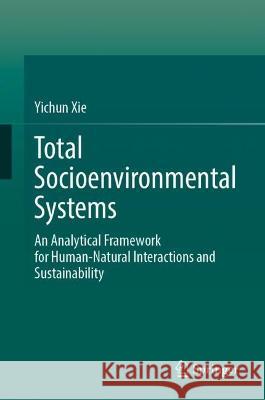Total Socioenvironmental Systems » książka
topmenu
Total Socioenvironmental Systems
ISBN-13: 9783031395932 / Angielski / Twarda / 2023
This book presents a new analytical framework and several newly developed quantitative methods to investigate the interactions between climatic, ecological, and socioeconomic factors as a total socioenvironmental system (TSES). Facing the increasingly imperiled ecosystems around the world, understanding the complex relationships between humans and environments is of utmost importance. This book offers several solutions to these challenges based on the author's research and illustrates them with case studies and annotated data sets. It develops the conceptual framework of a TSES, emphasizing the identification of causal relationships as a starting point to investigating the interactions between biophysical phenomena and socioeconomic factors. The book experiments with various spatial data assimilation techniques such as GIS for matching diverged areal units over which biophysical and socioeconomic datasets are collected. Trend extraction methods including machine learning for synchronizing distinct temporal rhythms hidden in biophysical and socioeconomic phenomena to augment their causal relationships are explored as well. The book also examines sustainability in urban systems, social systems, and ecosystems. This volume will be useful to readers across many disciplines, including but not limited to geographic information science, ecological informatics, environmental informatics, regional and urban modeling, quantitative social sciences and planning.











